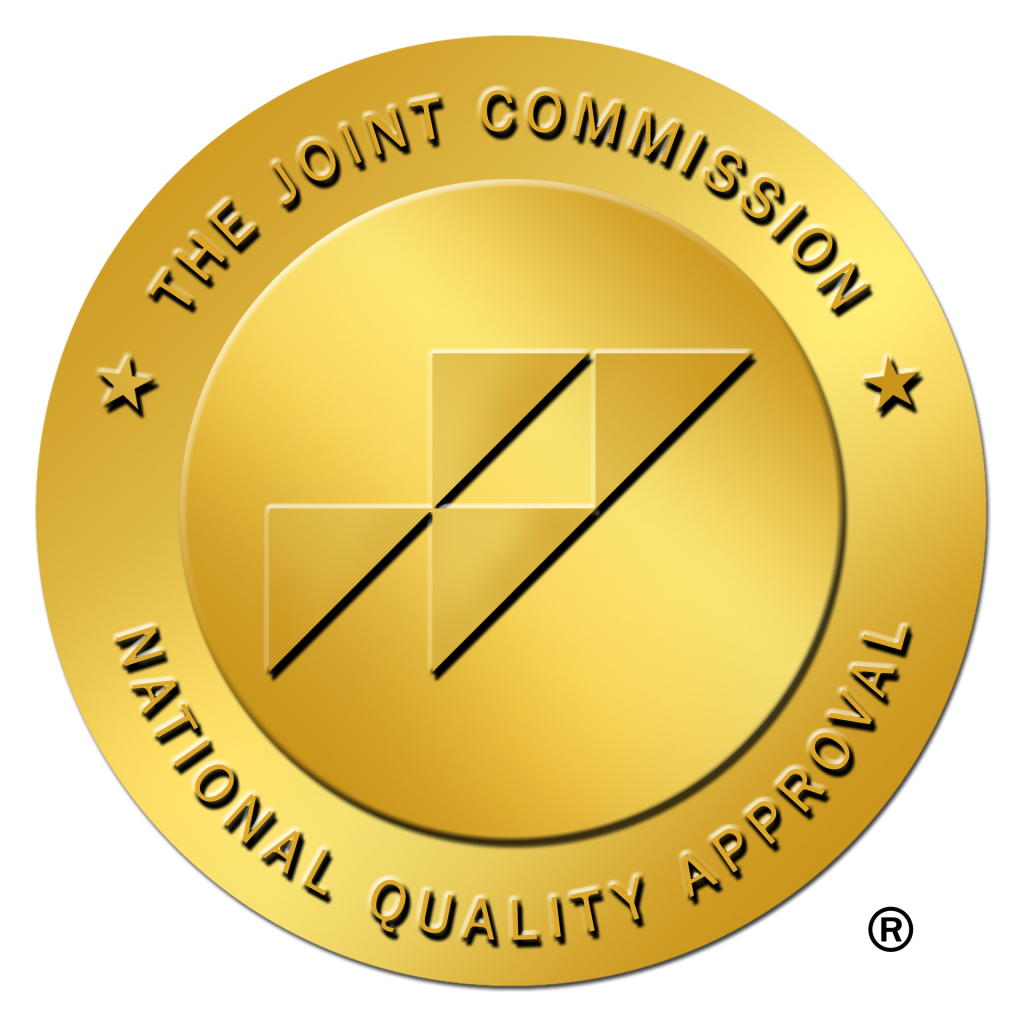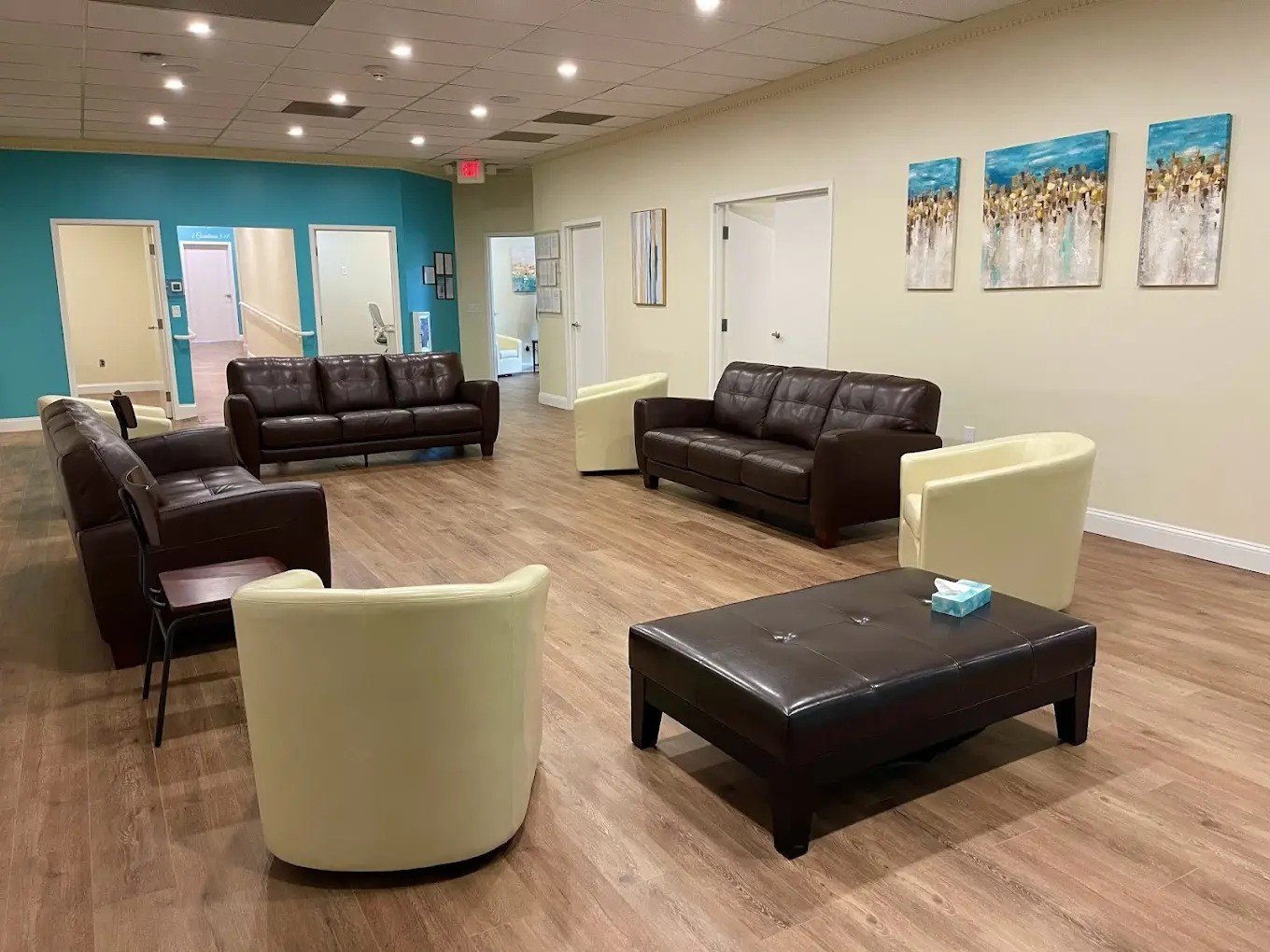Va Approved Rehab Centers Nj
Overview of VA Approved Rehab Centers NJ
VA approved rehab centers in New Jersey offer specialized programs tailored for veterans seeking recovery from substance use disorders. These centers, such as New Chapter Recovery in Parsippany-Troy Hills, provide a variety of therapeutic services aimed at addressing both addiction and co-occurring mental health issues. Understanding the dynamics and benefits of these facilities is crucial for veterans and their families.
New Chapter Recovery stands out among these centers by offering a comprehensive approach that includes Partial Hospitalization Programs (PHP), Intensive Outpatient Programs (IOP), and Outpatient Programs (OP). Each program is designed to accommodate different needs and schedules, ensuring accessibility for all veterans, including those balancing work or family commitments.
Exploring Treatment Options
The treatment options at VA approved rehab centers in NJ are diverse, addressing various types of substance use disorders including alcohol, opioids, and stimulants. New Chapter Recovery provides individualized treatment plans incorporating evidence-based therapies such as Cognitive Behavioral Therapy (CBT) and Dialectical Behavior Therapy (DBT).
In addition to traditional treatments, these centers often integrate specialty tracks like animal-assisted therapy and faith-based recovery. Such programs can be especially beneficial for veterans, providing them with a sense of familiarity and comfort during the recovery process.
Medication-assisted treatment is another key component offered at these centers. This approach helps to alleviate withdrawal symptoms and reduce cravings, significantly increasing the chances of successful recovery and long-term sobriety.
- Partial Hospitalization Programs (PHP): Structured day schedules with evening home return.
- Intensive Outpatient Programs (IOP): Flexible sessions for balancing work or school.
- Outpatient Programs (OP): Step-down care for relapse prevention.
Importance of Dual Diagnosis
Many veterans seeking treatment at VA approved rehab centers in NJ struggle with co-occurring mental health conditions. Dual diagnosis services, such as those at New Chapter Recovery, focus on addressing both the addiction and any underlying mental health issues simultaneously. This holistic approach is vital in promoting lasting recovery.
By using trauma-informed practices, counselors and therapists work to identify the roots of trauma and its impact on substance use. This form of treatment not only helps veterans process past experiences but also equips them with coping mechanisms for future challenges.
New Chapter Recovery’s integrated model is designed to provide a seamless experience for veterans, offering consistent support and guidance throughout their recovery journey.
Family and Community Support
Family involvement is crucial in the rehabilitation process. VA approved rehab centers in NJ often offer family support programs to educate and engage loved ones in the recovery journey. New Chapter Recovery includes family therapy sessions, helping to rebuild trust and repair relationships that might have been strained by addiction.
Community reintegration is another focus area for these centers. By coordinating aftercare planning, New Chapter Recovery ensures that veterans have continued support post-treatment. This includes connecting clients with community resources and support groups to maintain their sobriety.
Tailored Programs for Veterans
New Chapter Recovery is dedicated to offering programs specifically tailored to veterans’ unique needs. With options like veterans treatment tracks and services covered by VA and Tricare benefits, veterans can receive care without the added stress of financial burden.
The center also offers flexible scheduling, understanding the demands of working professionals and those with family responsibilities. This flexibility allows veterans to engage in therapy sessions without disrupting their daily lives.
The Role of Evidence-Based Therapies
Core Therapies:
Evidence-based therapies form the backbone of treatment at New Chapter Recovery, ensuring that all interventions are grounded in scientific research and proven results. Cognitive Behavioral Therapy (CBT), Dialectical Behavior Therapy (DBT), and Acceptance and Commitment Therapy (ACT) are among the primary methodologies used to address addiction and mental health disorders.
Experiential therapy offers a more hands-on approach, often involving activities that help patients process emotions and experiences through creative or physical outlets. This type of therapy can be particularly effective for veterans, providing alternative ways to communicate and heal.
Relapse Prevention Strategies
Developing a robust relapse prevention plan is essential for maintaining long-term sobriety. New Chapter Recovery emphasizes the importance of individualized goal setting, where clients work alongside therapists to identify personal triggers and develop coping strategies.
Through regular check-ins and monitoring, the center helps veterans stay accountable while providing ongoing support. Group therapy sessions also play a crucial role, offering a space for veterans to share experiences and learn from peers navigating similar challenges.
Admissions and Insurance Verification
The admissions process at New Chapter Recovery is designed to be quick and efficient. Offering same-day admissions and free confidential assessments, the center ensures that veterans can access the help they need without unnecessary delays.
The dedicated admissions team handles insurance verification swiftly, clarifying coverage and benefits, including out-of-network and Tricare benefits, to alleviate financial concerns and streamline the entry into treatment.
A Focus on Measurable Outcomes
New Chapter Recovery is committed to measuring clinical outcomes to ensure the effectiveness of treatment programs. By setting clear, measurable goals, the center provides clients with tangible benchmarks to track their progress.
Outcome measurement not only ensures accountability but also allows therapists to adjust treatment plans as needed, ensuring that each veteran receives the most effective care tailored to their evolving needs.
- Individualized goal setting for personal accountability.
- Regular assessments to track and adjust progress.
- Focus on long-term success and relapse prevention.
Community Relationships and Referrals
New Chapter Recovery values its partnerships within the community, working closely with various referral sources to provide a comprehensive network of support for veterans. Collaborative relationships with local healthcare providers, veteran organizations, and support groups facilitate a seamless continuum of care.
These partnerships enhance treatment outcomes by ensuring that veterans have access to a wide range of resources and support systems, both during and after their time at the treatment center.
Specialty Therapies
Incorporating specialty therapies adds a unique dimension to the treatment process at New Chapter Recovery. Animal-assisted therapy, for instance, uses the therapeutic presence of animals to provide comfort and reduce anxiety, offering veterans an alternative pathway to healing.
Faith-based recovery programs cater to those seeking spiritual guidance as part of their rehabilitation. By integrating personal beliefs and values into the recovery process, these programs offer a more personalized and meaningful experience for those pursuing sobriety through their faith.
What makes VA approved rehab centers in NJ particularly suitable for veterans seeking recovery from substance use disorders?
VA approved rehab centers in New Jersey, like New Chapter Recovery, provide specialized programs tailored specifically for veterans. These centers understand the unique challenges veterans face, such as co-occurring mental health issues resulting from service-related trauma. By integrating trauma-informed practices and offering support that aligns with veterans’ experiences, these centers create a therapeutic environment where veterans feel understood and supported. For instance, utilizing therapies like Cognitive Behavioral Therapy (CBT) and animal-assisted therapy can resonate well with veterans who may find traditional verbal therapies overwhelming. The centers also offer flexible programs such as Partial Hospitalization Programs (PHP) and Intensive Outpatient Programs (IOP) to accommodate veterans’ schedules, allowing them to balance therapy with other life responsibilities. Have you explored how personalized care impacts recovery outcomes in veterans?
How do the treatment options offered at VA approved rehab centers in NJ enhance the recovery journey for veterans?
Treatment options at these centers are extensive, ranging from evidence-based therapies to innovative specialty tracks. The incorporation of treatments like Dialectical Behavior Therapy (DBT) and Acceptance and Commitment Therapy (ACT) provides a robust framework for addressing both addiction and mental health challenges. For instance, some centers offer medication-assisted treatment to help manage withdrawal symptoms and cravings, which can be instrumental in maintaining sobriety for veterans. Additionally, specialty tracks like animal-assisted therapy and faith-based recovery provide veterans with alternative therapeutic outlets tailored to their personal preferences, contributing to a more holistic recovery experience. Could exploring creative therapies introduce new pathways for healing?
Why is dual diagnosis crucial in the care of veterans at VA approved rehab centers in NJ?
Dual diagnosis is critical because many veterans grapple with both substance use disorders and mental health conditions, such as PTSD or depression, often stemming from their military service. Addressing both issues simultaneously is essential for effective treatment. Counselors at these centers are trained in trauma-informed care, helping veterans process past experiences while developing coping strategies for future challenges. This comprehensive approach aids in breaking the cycle of addiction by treating its root causes, promoting long-term recovery. For example, veterans who have found success often cite the value of understanding how their mental health influences their addiction behavior and vice versa. What role do you think mental health plays in addiction recovery?
What role does family and community support play in the rehabilitation of veterans at VA approved rehab centers in NJ?
Family and community support is integral to successful rehabilitation. Family therapy sessions offered at centers like New Chapter Recovery work on rebuilding trust and repairing relationships strained by addiction. Engaging the family in the recovery process not only provides emotional support for the veteran but also helps the family understand the nature of addiction, enhancing the overall healing environment. Moreover, community reintegration involves coordinating aftercare plans to sustain recovery post-treatment, connecting veterans with local resources and support groups. The collaborative effort ensures a support network is in place, crucial for maintaining sobriety. How do you think involving loved ones in therapy influences recovery outcomes?
How are programs tailored specifically for veterans at VA approved rehab centers in NJ, like New Chapter Recovery?
Programs at centers such as New Chapter Recovery are uniquely tailored to fit the specific needs of veterans. This includes offering veterans treatment tracks that align with their experiences and providing services covered by VA and Tricare benefits, thereby reducing financial worries. Additionally, the centers offer flexible scheduling options to accommodate veterans with work or family responsibilities, ensuring they can participate in therapy without major interruptions to their lives. By understanding the unique demands faced by veterans, these centers create an adaptable therapeutic experience, fostering engagement and compliance. Do you think personalized therapy improves the effectiveness of addiction treatment?
What is the significance of using evidence-based therapies in treating veterans at VA approved rehab centers in NJ?
Evidence-based therapies such as CBT, DBT, and ACT provide a scientifically validated framework for addressing addiction and mental health disorders. Utilizing these therapies ensures that interventions are both effective and reliable. For veterans, these therapies can be particularly beneficial, offering structured approaches to understanding and altering maladaptive behavior patterns. Moreover, experiential therapy offers veterans non-traditional therapeutic avenues through activities that help process emotions creatively, often resulting in enhanced engagement with the treatment process. Incorporating these methodologies builds a solid foundation for recovery, as evidenced by numerous studies highlighting their efficacy in substance use disorder treatment. How might integrating creative therapeutic forms impact recovery experiences?
What are the key components of effective relapse prevention strategies at VA approved rehab centers in NJ?
Effective relapse prevention strategies typically involve individualized goal setting, identification of personal triggers, and the development of coping mechanisms. At centers like New Chapter Recovery, veterans collaborate with therapists to create personalized plans that address their unique challenges. The center emphasizes continuous support through regular check-ins and group therapy sessions, providing accountability and peer learning opportunities. Such strategies not only reinforce sobriety but also empower veterans with practical tools for navigating daily life challenges. What role do you think peer support plays in maintaining sobriety?
How is the admissions and insurance verification process streamlined at VA approved rehab centers in NJ to facilitate swift entry into treatment?
Centers like New Chapter Recovery prioritize quick and efficient admissions processes, offering same-day admissions and free confidential assessments. This immediacy is crucial in ensuring veterans can access the care they need without delays. An experienced admissions team manages insurance verification swiftly, elucidating coverage details, including out-of-network and Tricare benefits, which alleviates financial concerns and streamlines the entry into treatment. This efficiency allows veterans to focus on their recovery rather than administrative hurdles. How might reducing entry barriers impact treatment success rates?
Why is there a focus on measurable outcomes at VA approved rehab centers in NJ like New Chapter Recovery?
Focusing on measurable outcomes ensures treatment effectiveness by allowing for progress tracking and necessary adjustments to treatment plans. New Chapter Recovery emphasizes individualized goal setting, which provides tangible benchmarks for veterans to achieve and maintain. Regular assessments facilitate the tweaking of treatment approaches, ensuring they remain relevant to the veterans’ evolving needs. This data-driven approach enhances accountability and provides clear evidence of progress, which is motivational for those in recovery. What metrics do you think are most useful for assessing progress in addiction treatment?
How do community relationships and referrals enhance the treatment experience at VA approved rehab centers in NJ?
Community relationships and referrals are pivotal in creating a comprehensive support network for veterans. New Chapter Recovery collaborates with local healthcare providers, veteran organizations, and support groups, ensuring veterans benefit from a seamless continuum of care. These partnerships expand the resources available to veterans, providing them with diverse support systems that facilitate their reintegration into the community post-treatment. By bridging the gap between treatment and everyday life, these collaborations significantly enhance recovery outcomes. How can community ties bolster the support network for veterans in recovery?
What unique benefits do specialty therapies offer to veterans at VA approved rehab centers in NJ?
Specialty therapies, such as animal-assisted therapy and faith-based recovery programs, offer veterans alternative pathways to healing that resonate with their personal experiences and beliefs. Animal-assisted therapy, for example, provides comfort and reduces anxiety through the therapeutic presence of animals, which can be profoundly calming for veterans with service-related trauma. Faith-based recovery integrates personal beliefs into the therapeutic process, offering a holistic recovery path. These therapies provide personalized and meaningful experiences, enhancing engagement and satisfaction with the treatment. Can incorporating personal interests into therapy elevate the recovery process?
Resources
- U.S. Department of Veterans Affairs – Official website providing information on benefits and services for veterans.
- Substance Abuse and Mental Health Services Administration (SAMHSA) – Government agency offering resources and programs related to substance abuse and mental health treatment.
- American Psychiatric Association – Organization dedicated to promoting mental health and supporting psychiatrists.
- National Alliance on Mental Illness (NAMI) – Nonprofit organization providing support and education for individuals and families affected by mental illness.
- National Institute on Drug Abuse (NIDA) – Federal agency conducting research on drug abuse and addiction.






